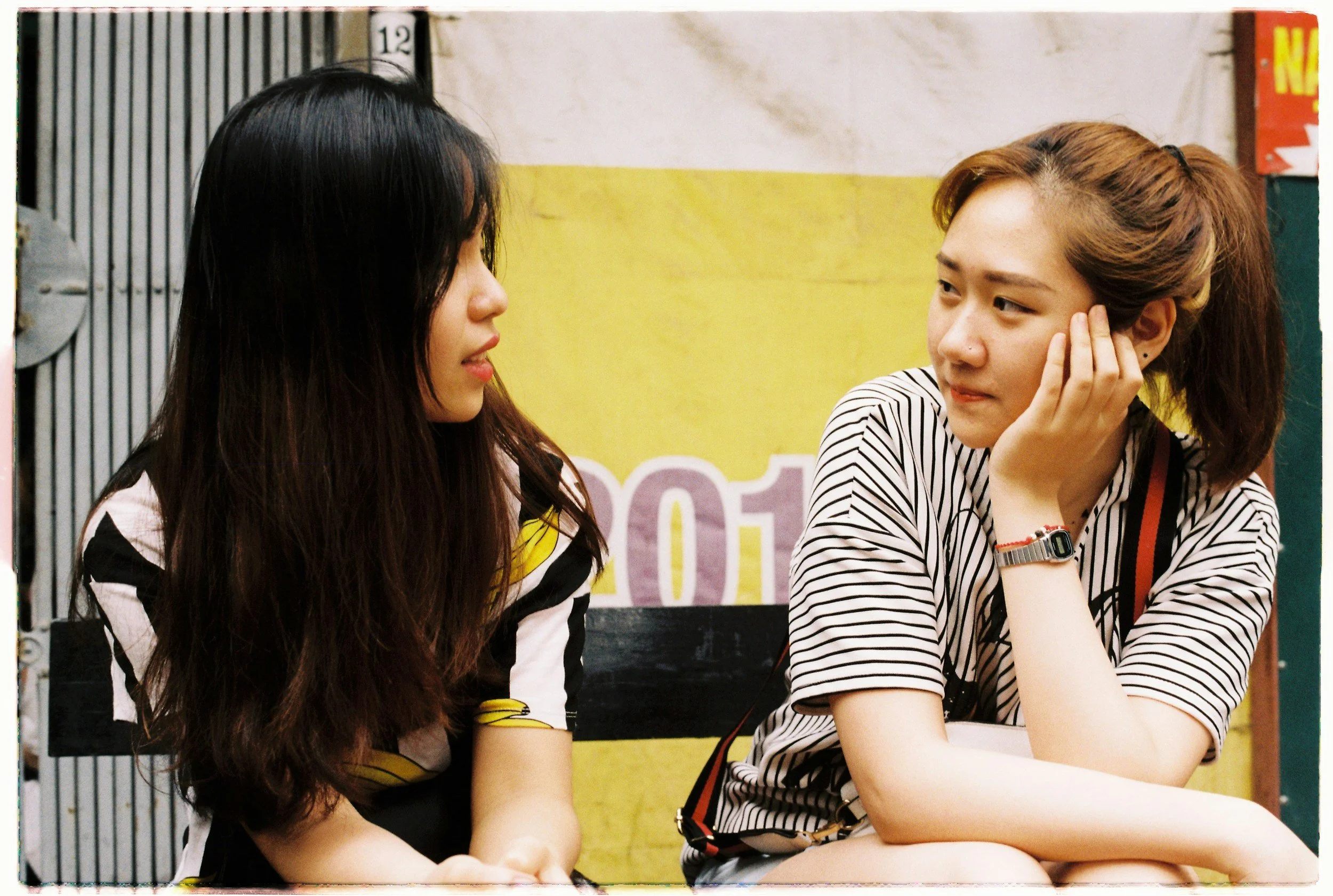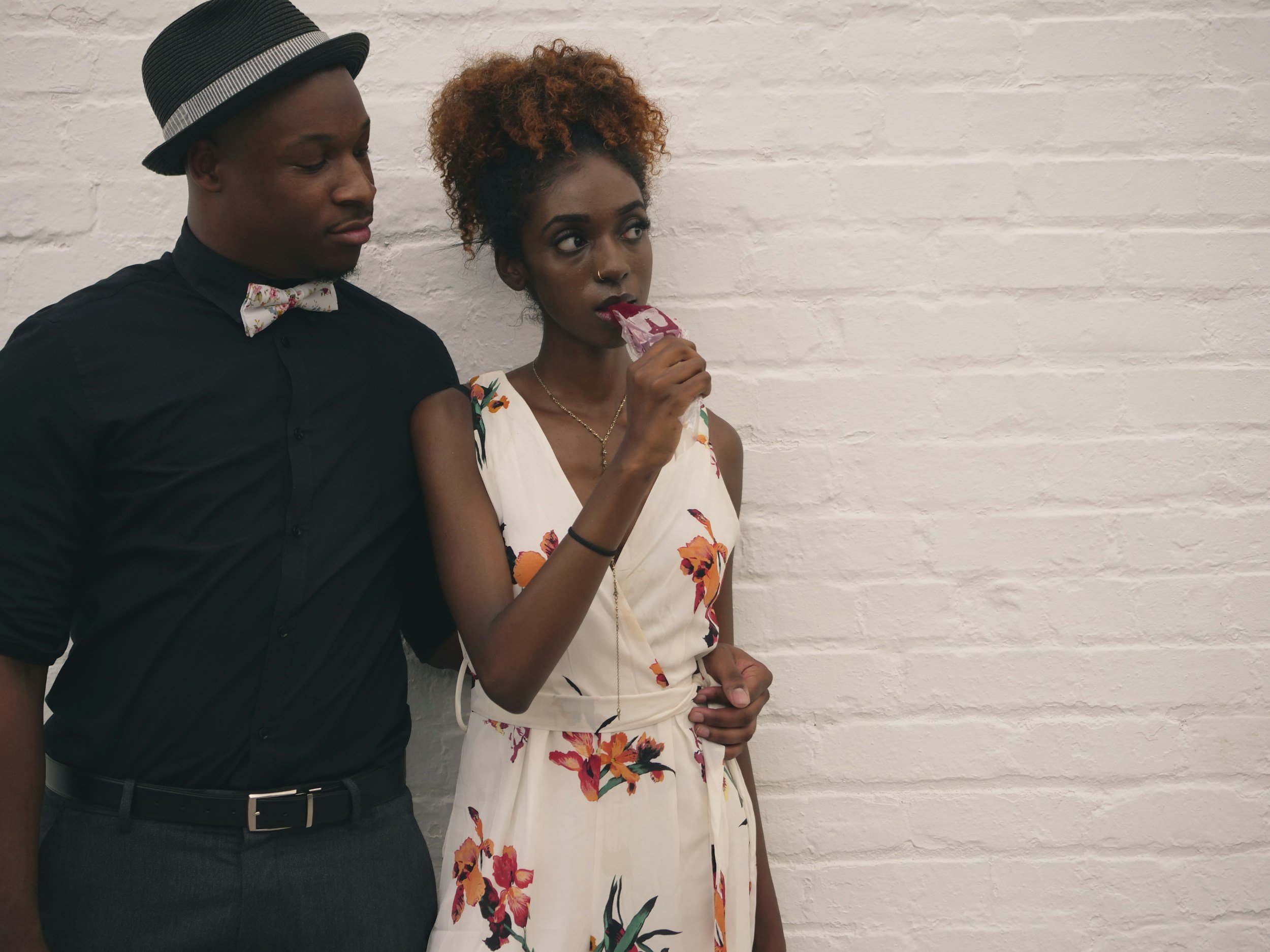BLOG
You've been together about a year, maybe a few months longer, and all of a sudden things start going sideways.
Suddenly you're wondering if they're a good fit for you. You start feeling more anxious about getting your needs met. You feel more upset than you used to when they let you down. You start fighting more often and getting triggered way more often.
You really love this person but suddenly it feels like your relationship is falling apart.
And it came out of nowhere.
So what the fck is happening??
A polyamorous client came to me wondering how to make sure one of her partners was using barrier methods with their other partners. The two of them had previously agreed to use barriers with new partners, but she was worried that wasn't happening and they had their first trip together coming up.
You're not sure how it happens, but every time you argue with your partner, you end up making the situation worse. Something small will happen, you'll have a disagreement, and all of a sudden, you're in a full-blown fight with hurt feelings and cold shoulders.
It feels like things get out of control quickly.
What starts as a conversation, quickly becomes a fight. You want to learn how to handle disagreements differently so that you and your partner can move through them without piling on and making it worse.
Ultimatums erode trust. Healthy relationships rely on generous benefit of the doubt—the belief that your partner has your best interests at heart and wants to make you happy. When you give your partner an ultimatum, you are saying: “I don’t trust you enough to make this choice unless I threaten you.”
Ultimatums undermine secure attachment. When you issue an ultimatum, you are making the relationship conditional on compliance. You are saying “if you don’t comply with my demands, I will end our relationship”. If a relationship cannot experience rupture followed by repair, secure attachment is impossible.
Acknowledging that your partner will likely have a very different and much safer experience of the next four years is painful. I’m still gonna ask you to do it. The more distance we experience from our loved ones, the more likely we are to develop inaccurate narratives about their experience that further divide us. This leads to resentment, a toxic feeling to have about your partner.
Most kids have already seen pornography by the time they're 12 and 45% of teenagers agree that they can learn helpful information about sex from pornography.
But children using pornography for sex education is already having dangerous and far-reaching consequences.
Sometimes it may feel like your partner shuts down and freezes you out whenever you try to talk to them about something important.
But there's a good chance that's not what's really happening.
What's more likely happening is that they're taking an involuntary break. People shut down when they are overwhelmed and it's often not a choice–their brain needs a break so it takes it with or without their permission.
When I had my puberty class in 6th grade, the girls were separated from the boys and we learned entirely different material. Also it was taught by the school nurse, definitely not a sex ed professional. As soon as those classes were over. . .
Chaos.
The boys heard that girls bleed once a month but didn't get any information about why or for how long or how it was handled. They also learned we were supposed to have boobs by now. (I can't confirm this is actually what they learned but this is what they retained.)
The girls heard that boys would start to have crushes on us soon and they might start behaving differently by being mean or snapping our bra straps. We were supposed to forgive them and ignore them if they did this.
Jealousy is not a pleasant feeling by any means. It often stirs up a bunch of emotions from the past and can be truly distressing to experience. And many of us have internalized cultural messaging around jealousy. For people socialized masculine, being jealous was probably a good thing that received positive feedback and was encouraged. For people socialized feminine growing up, jealousy was probably written off as hysterical and you only received positive feedback for being “cool”.
But jealousy is completely normal. It’s a normal feeling that everyone experiences in response to different situations and to varying degrees. If you truly don’t experience jealousy, that probably means you were raised with a secure attachment style and have continued to have relationships with secure attachment. While we’re all very happy for you, that's not the norm.
"When I say I'm sorry, my partner doesn't feel better, they still feel angry and hurt.”
Sound familiar?
You and your partner have a fight, you say or do something hurtful, you take some time to cool off, and then you apologize.
But it doesn't work. You truly mean it when you say you're sorry but your partner still feels hurt, they're still avoiding you, you're not easy with each other, and there's still tension between you.
So what's the issue?
You're making the apology about you.
If your kid goes online (they all do) and uses any platform with a chat feature (most of them do), they are going to get DMs from strangers. Many of these will be harmless.
Some will not.
The very best defense you can give to your child against online predators is information.
The key difference between guilt and shame is one of identity.
If shame is "I am a bad person", guilt is "I have done a bad thing."
Rather than collapsing your entire identity into a mistake you've made, you can recognize that there is a difference between your behavior and your person.
You can do a bad thing without being a bad person. You can make a mistake without it meaning anything about who you are.
If you've been thinking that a conflict is just a fancier way to frame a fight, I think you're right that a lot of people are using it that way right now. Like, I'm pretty sure Gwenyth Paltrow would only have conflict and never a fight.
But they're actually two very different things with two different purposes and personally, I think BOTH of them are useful in relationships.
Being with someone in grief is not intuitive and it’s not a skill that most of us have anymore. It's been lost as we become more and more isolated into our nuclear families. Grief is uncomfortable in its intensity. Being around grief reminds us of our own pain and thank you, but we’d really rather not. It’s much more comfortable to dismiss it, sugarcoat it, or fix it than it is to let it be.















There is a difference between a relationship that's painful because it's growing and a relationship that's painful because it needs to end.
If your relationship is in a growing phase, it can feel like you're not getting your needs met, like you're not sure if this is going to work long-term, you feel like you're doing all the work, and you wish you could fast forward (or rewind) to that place where you feel stable and secure. AND DESPITE ALL OF THIS, you still want to stay together.